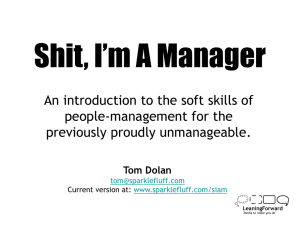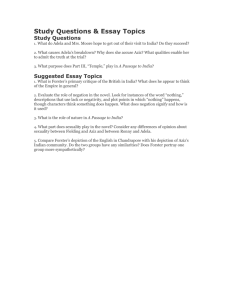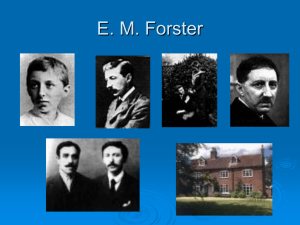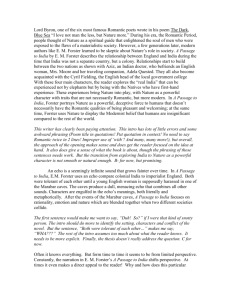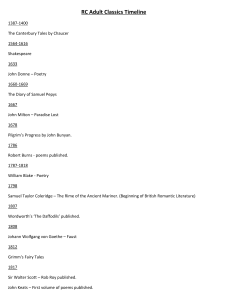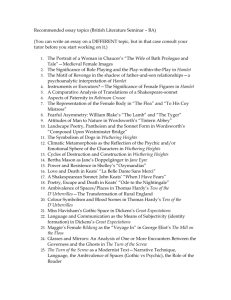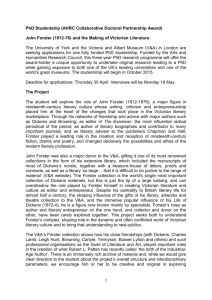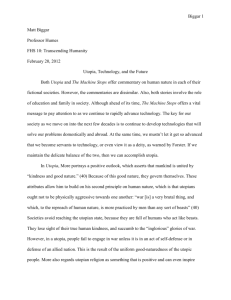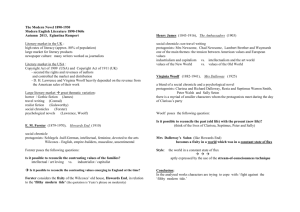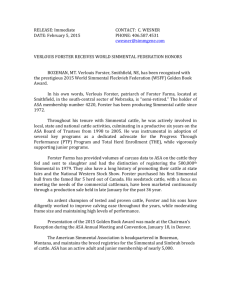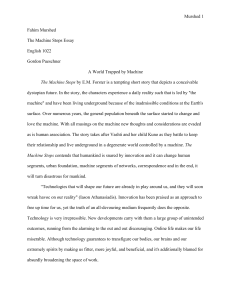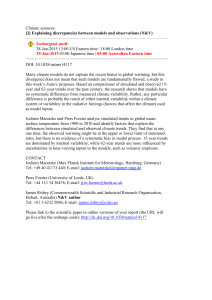E.M. Forster
advertisement
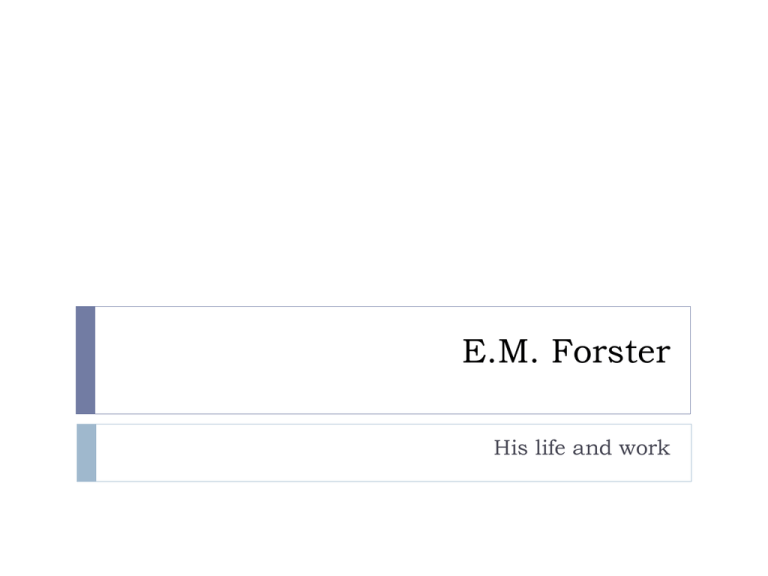
E.M. Forster His life and work Early life Born in 1879 in London Edward Morgan Forster Father was an architect Died before Edward was 2 Raised by women - mother and aunts Used money from great aunt to travel and write later in life Forster as a child, 1890 Childhood home, Rooksnest College Life Attended King’s College of Cambridge 1897-1901 Member of Apostles Discussion group Later became Bloomsbury Group Virginia Woolf also a member Enjoyed freedom of intellectual discussions and focus on personal relationships After graduation Traveled with his mother to Italy and Greece Gave him material to use later Satire of British tourists Feared anything “foreign” Wrote essays and stories for liberal Independent Review Forster with mother Tutoring 1905 - tutored in Germany for a Countess’s son 1906 - tutored Syed Ross Masood Indian Muslim patriot Grew fond of him Forster, 1915 Forster with Masood, 1911 Written work 1905 - Where Angels Fear to Tread 1907 - The Longest Journey 1908 - A Room with a View 1910 - Howard’s End Clash between business and art 1971 - Maurice Homosexual theme Personal life Kept personal life hidden and out of discussion 1930 - involved in a relationship with a London policeman Also friends with his wife Maurice published posthumously Travel and work 1912-1913 - traveled to India with Masood 1914-1915 - worked for National Gallery in London WWI - worked for Red Cross in Egypt Wrote poetry while there 1921 - returned to India Worked as private secretary to Maharajah of Dewas India A Passage to India Started writing it before WWI Published 1924 About India under British rule Published nonfiction work about India E. M. Forster A Passage to India David Lean) (1984 directed by Plot Summary: novel film A Passage to India Published in 1924, the last completed novel that Forster published during his lifetime. Major Characters in the novel: 1. Dr. Aziz: 2. Cyril Fielding 3. Adela Quested 4. Mrs. Moore 5. Professor Narayan Godbole 6. Ronny Heaslop A Passage to India David Lean) (1984 directed by Themes: 1. the difficulty of friendship between an Englishman (the colonist) and an Indian (the colonized) 2. the racism and oppression of the British who rule India 3. the “muddle” of Indian civilization and psychology, and the oneness (and perhaps sameness) of all life Death and reputation Died in 1970 Known for being critical of Victorian middle class attitudes and British colonialism Explores class differences and sexuality Used characters to critique issues Sources Sharpe, Jenny. “The Unspeakable Limits of Civility:A Passage to India.” Minneapolis: University of Minnesota Press, 1993.
